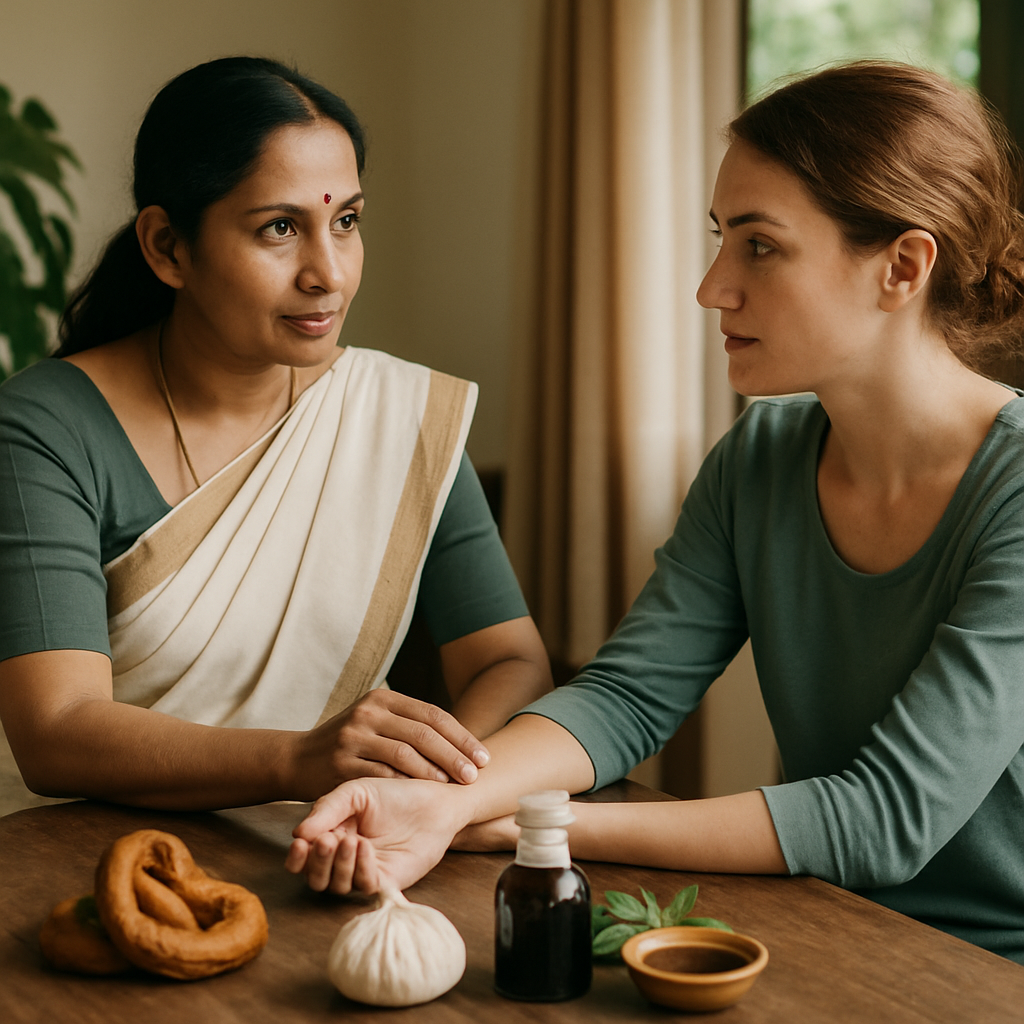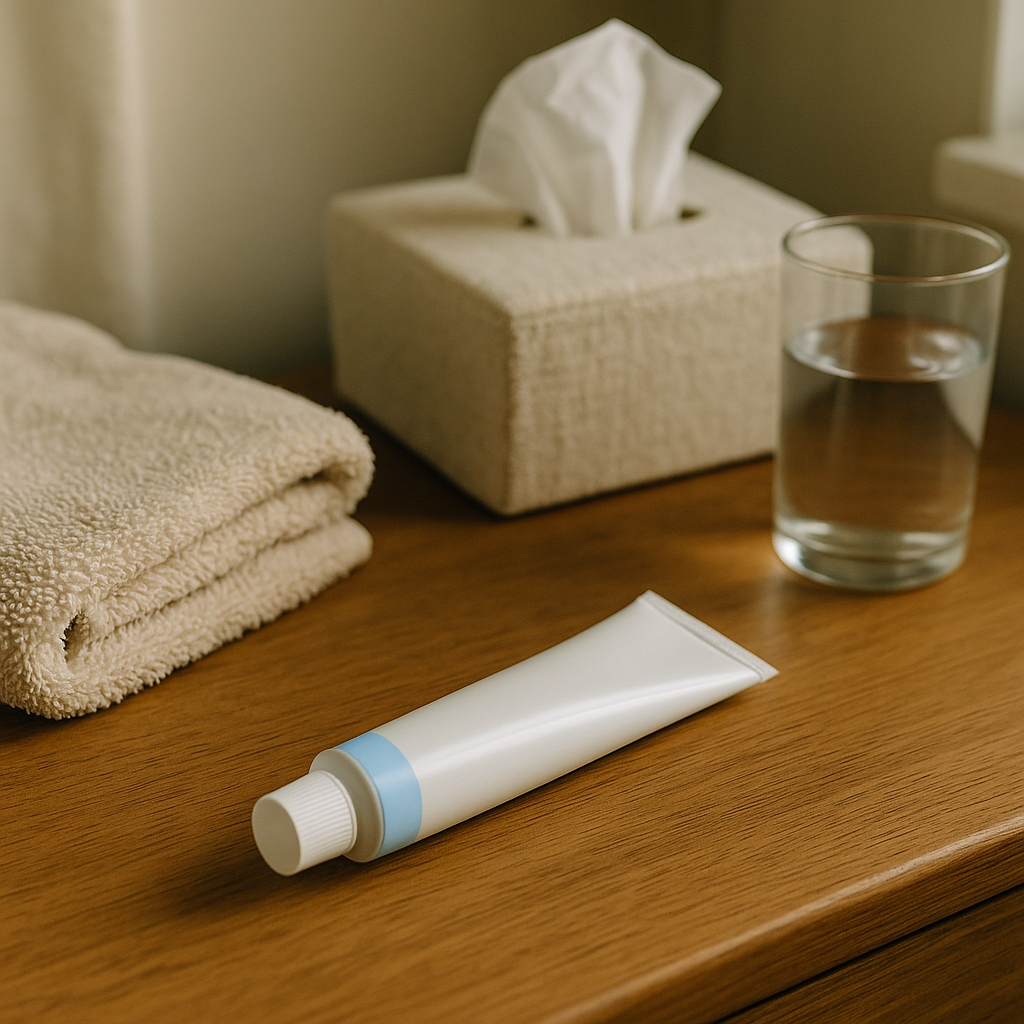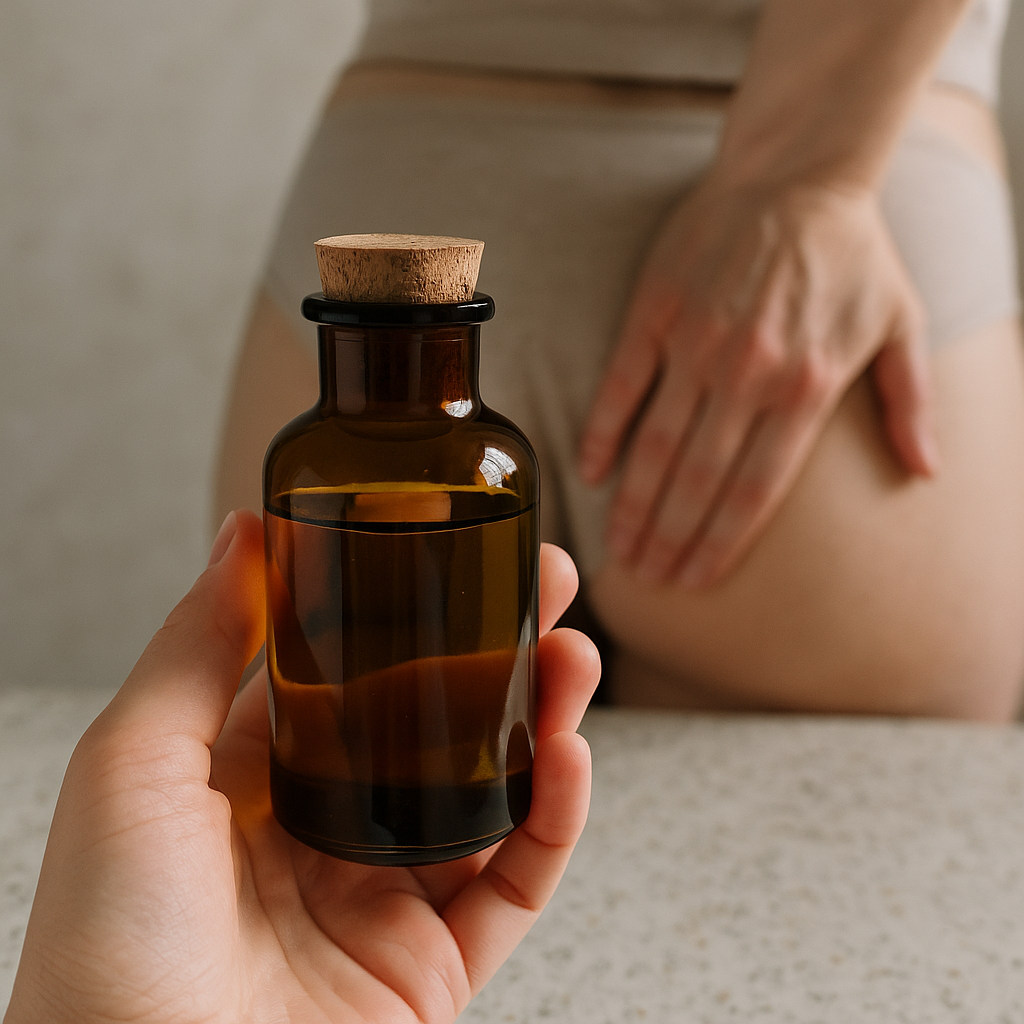Ask Ayurvedic doctor a question and get a consultation online on the problem of your concern in a free or paid mode. More than 2,000 experienced doctors work and wait for your questions on our site and help users to solve their health problems every day.
How to Cure Anal Fissure Naturally with Ayurvedic and Home Remedies

Anal fissures are a common and often painful condition that many people hesitate to talk about. But if you've found yourself googling "how to cure anal fissure" at 2 AM, trust me — you're not alone. The good news? You don’t always need surgery or strong medications. In fact, there's a whole world of gentle, effective options that focus on anal fissure treatment at home using natural and ayurvedic remedies.
From soothing oils like castor and coconut to time-tested ayurvedic treatments, there’s a lot you can do to support healing. In this guide, we’re diving deep into the best natural ways to handle this stubborn little problem — without side effects, and without shame.
Whether you’re dealing with an acute fissure or a chronic one, learning the right treatment for anal fissure can bring not only relief, but also long-term prevention. Let’s break it down, naturally.

What Is an Anal Fissure and Why It Occurs
An anal fissure is a small tear in the lining of the anus — the area where your body gets rid of waste. It might sound minor, but it can hurt like heck, especially during or after bowel movements. Common symptoms include sharp pain, burning, itching, and sometimes even a bit of bleeding. Not fun.
But why does it happen? Usually, it’s caused by passing hard stools, chronic constipation, or sometimes prolonged diarrhea. Straining too much, pregnancy, and even stress can contribute. Once a fissure forms, the muscle around the anus (called the internal sphincter) may spasm, which reduces blood flow to the area and makes healing slow and frustrating.

Anal Fissure Treatment at Home: Natural Solutions
Let’s face it — not everyone wants to jump straight to the doctor’s office. For mild to moderate cases, there are plenty of things you can try at home to soothe the pain and encourage healing.
Home Remedies for Anal Fissure Relief
One of the most effective anal fissure home remedy options is a warm sitz bath. Sitting in warm water for 15-20 minutes several times a day can help relax the anal muscles, improve circulation, and reduce pain.
You can also apply natural oils directly to the area. Coconut oil for anal fissure is a soothing and anti-inflammatory option. Many people swear by it. Another excellent choice is castor oil for anal fissure, which promotes healing and reduces pain — just dab a small amount gently with clean hands or a cotton swab.
Hydration is super important, too. Drink more water than you think you need. Trust me, your body (and your butt) will thank you.
Diet and Bowel Habits for Healing
Diet plays a massive role in the treatment of anal fissure. A high-fiber diet softens stools and makes bowel movements less painful. Think fruits, veggies, whole grains, and seeds. Don’t skip meals, and try to eat at regular times to keep digestion smooth.
Avoid spicy food, caffeine, and alcohol — these can irritate the gut and delay healing. Some folks say coffee doesn't bother them, but if you’re healing, maybe skip that second cup just for now.
And please — don’t ignore the urge to go. Holding it in can make things a lot worse.
Anal Fissure Ayurvedic Treatment and Internal Care
Ayurveda, India’s ancient system of medicine, has been treating conditions like anal fissures for centuries — using a combination of herbs, oils, dietary adjustments, and lifestyle changes. If you’re exploring anal fissure treatment in Ayurveda, you’re stepping into a holistic path that not only treats the symptoms but also addresses the root cause.
So how does ayurvedic treatment for anal fissure actually work?
For starters, it focuses on balancing the body's energies (doshas), especially Vata — which governs movement and elimination. When Vata is aggravated, constipation and dryness in the colon occur, increasing the risk of fissures. Ayurveda uses internal remedies (like herbal concoctions) and external applications to calm this imbalance.
Some popular herbs include:
-
Triphala: Known for its gentle laxative effect and colon cleansing properties.
-
Guggulu: Anti-inflammatory and speeds up tissue healing.
-
Haritaki: Great for regulating digestion and relieving constipation.
These can be taken as powders, teas, or capsules — but honestly, talk to an Ayurvedic practitioner before starting anything new. Self-medicating without understanding your body type (prakriti) isn’t always the best idea.
In addition to herbs, Ayurveda often recommends basti (medicated enemas) for chronic cases. While that might sound intimidating, it’s actually a very gentle and effective treatment of anal fissure, helping lubricate the rectum and ease bowel movements.
And let’s not forget yoga — yes, yoga. Certain poses like Pawanmuktasana or Malasana help improve digestion and blood flow to the pelvic area, boosting healing naturally. Plus, it reduces stress, which can also impact gut health.

Best Oils and Creams for Anal Fissure Relief
Oils and ointments can do wonders — especially when they’re natural, soothing, and anti-inflammatory. But not all of them are created equal.
Castor Oil and Coconut Oil for Anal Fissure
Let’s start with the classics. Coconut oil for anal fissure is one of the most popular go-to remedies. It’s antimicrobial, cooling, and deeply moisturizing. You can apply it 2-3 times a day to help reduce pain and inflammation. It’s safe, inexpensive, and widely available.
Castor oil for anal fissure works a bit differently. It has a thicker consistency and is known to promote deep tissue healing. Some people prefer to warm it slightly before application — but be careful not to make it too hot! You don’t want to make things worse down there. You can alternate between the two or choose the one that works best for your body.
Best Ointment for Anal Fissure According to Ayurveda
When it comes to anal fissure ointment, Ayurveda offers formulations made with herbs like Jatyadi oil, Neem, and Turmeric. These are often combined in anal fissure cream products designed specifically to reduce pain and support natural healing.
If you're buying over the counter, look for anal fissure ointments that mention Ayurvedic ingredients or are recommended by practitioners. Avoid anything too chemical-heavy — those can sting or dry out the delicate skin.
Always patch-test first if you’re using something new — it’s an easy step to avoid a world of discomfort later.

Prevention and Long-Term Care After Anal Fissure Recovery
Recovering from an anal fissure can feel like a massive relief, but that doesn’t mean you’re done just yet. The real trick lies in keeping it from coming back. Because yeah — if you slip back into old habits, it might just show up again (ugh).
The key to long-term treatment for anal fissure is consistency.
Hydration should become your best friend. Seriously, drink water like it’s your job. Aim for at least 2 to 3 liters a day — more if it’s hot or you’re active.
Fiber is the other MVP. Think psyllium husk, chia seeds, oats, and cooked veggies. If you find it hard to get enough through diet alone, fiber supplements (natural ones) can help — but always start slow to avoid bloating.
Avoid straining during bowel movements. If you’re spending 10 minutes scrolling memes on the toilet… maybe don’t. Get in, get out. You know what I mean.
Also: regular exercise! Walking, yoga, and light cardio all help maintain smooth digestion. You don't need to run a marathon — just move daily. It keeps the gut happy and the stool soft (weird sentence, but true).
Last but not least — stress management. You wouldn’t think it’s related, but stress messes with your gut like crazy. Try meditation, breathing exercises, or whatever helps you unwind. Even a good nap counts.
Conclusion
So, can you really learn how to cure anal fissure naturally, without harsh meds or surgery? Absolutely — as long as you're consistent, gentle with your body, and willing to tweak your daily routine just a bit.
We’ve talked about using anal fissure home remedies like sitz baths, coconut oil, castor oil, and adopting anal fissure ayurvedic treatment methods like Triphala or Jatyadi oil. These aren’t just random hacks — they’re rooted in centuries of traditional wisdom, and they work when done right.
If you’re dealing with this issue, don’t suffer in silence. Start with these remedies, adjust your diet and habits, and stay patient. Healing takes time. It’s annoying, but it’s true.
And remember: your body wants to heal. You just have to help it a little.
FAQs
Will an anal fissure heal on its own?
Yes, many acute anal fissures can heal on their own with proper care, hydration, and diet changes. But if it lasts more than 6 weeks, it’s considered chronic and might need extra help — like ointments or Ayurvedic treatments.
How long does it take to cure fissure naturally?
It really depends on the severity and how well you stick to your treatment. Some heal in a week, others take a month or more. Patience is key (and so is staying off spicy food for a bit).
Is it safe to use ointments daily?
Generally, yes — especially if you’re using natural or anal fissure ayurvedic treatment creams. But always follow label directions and watch for irritation. If something feels off, stop using it.
Can diet alone heal anal fissure?
For mild cases, yes. A high-fiber, hydrating diet can work wonders. But for more stubborn fissures, combining diet with anal fissure treatments like warm baths and topical remedies speeds up recovery a lot.
And hey, if this article helped you even a little, consider sharing it with a friend or loved one who might need it. Healing is better when we talk about it — even the awkward stuff.
👉 Take care of yourself. Your bum deserves peace too. 🍑

